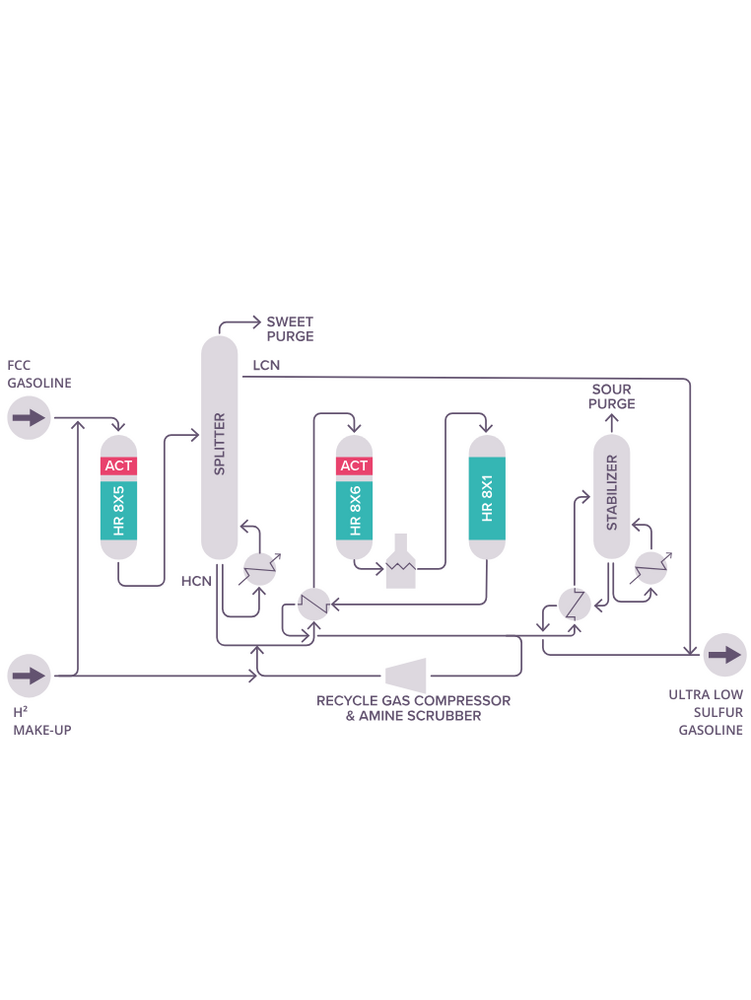
FCC Gasoline Selective Desulfurization Catalysts
The catalytic system, developed by Axens, allows achievement of ultra-low-sulfur gasoline targets by complete control of mercaptan species along the different steps of the process, while protecting the HDS section from pressure drop buildup and poisoning.
As the world leader in the field of selective FCC naphtha desulfurization, Axens offers tailored catalytic solutions. Due to an optimized metal content and highly neutral carrier, FCC gasoline HDS catalysts present very low sensitivity to impurities and excellent activity, stability, selectivity and regenerability. While octane retention is maintained over time, this ensures the longest cycle length between two turnarounds with no risk of intermediate shutdown, as well as extended cycle life.
With an unmatched experience of more than 300 Prime-G+® references worldwide, one third of gasoline produced worldwide today is treated by catalyst in Axens’ FCC gasoline HDS family.
You Might Be Interested In
Arsine Management
Silica Management
TO CONTACT US
Please fill in the contact form below